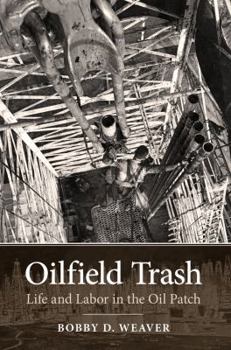Oilfield Trash: Life and Labor in the Oil Patch
(Part of the Kenneth E. Montague Series in Oil and Business History Series)
Select Format
Select Condition 
Book Overview
When the first gusher blew in at Spindletop, near Beaumont, Texas, in 1901, petroleum began to supplant cotton and cattle as the economic engine of the state and region. Very soon, much of the workforce migrated from the cotton field to the oilfield, following the lure of the wealth being created by black gold.
The early decades of the twentieth century witnessed the development of an oilfield culture, as these workers defined and solidified their position within the region's social fabric. Over time, the work force grew more professionalized, and technological change attracted a different type of laborer.
Weaver tracks the differences between company workers and contract workers. He details the work itself and the ethos that surrounds it. He highlights the similarities and differences from one field to another and traces changing aspects of the work over time. Above all, Oilfield Trash captures the unique voices of the laboring people who worked long, hard hours, often risking life and limb to keep the drilling rigs "turning to the right."
Related Subjects
Business Business & Investing Economics Engineering Historical Study & Educational Resources History Industries & Professions Labor & Industrial Relations Modern (16th-21st Centuries) Oil & Energy Petroleum, Mining & Geological Political Science Politics & Government Politics & Social Sciences Popular Economics Science & Math Social History State & Local Technology




